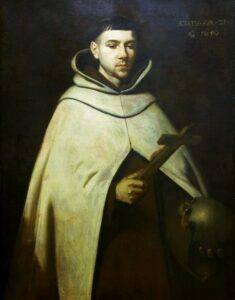 Already this Advent, we have seen how our ancestors in the faith had some expectations about how and in what way the promised and long-awaited Messiah would appear. Many of their thoughts were associated with political power, domination, and the destruction of traditional enemies. Instead, He came to heal people who were sick, weak, or had other disabilities. He restored them to wholeness in their individual and social lives and healed (or “repaired”) their relationship with God.
Already this Advent, we have seen how our ancestors in the faith had some expectations about how and in what way the promised and long-awaited Messiah would appear. Many of their thoughts were associated with political power, domination, and the destruction of traditional enemies. Instead, He came to heal people who were sick, weak, or had other disabilities. He restored them to wholeness in their individual and social lives and healed (or “repaired”) their relationship with God.
As we prepare to celebrate the birth of the Anointed One who comes, let us remember that the work of Jesus to liberate those who are lame, deaf, blind, poor, or ostracized still needs to be done and that it is the responsibility of each one of us to make our own contribution.
***
The Church celebrates today the feastday of St. John of the Cross. Although physically a small man, he was in every other way a “giant.” He combined in one person, poetic sensitivity and eloquence with the disciplined thinking of a philosopher and theologian. He left books on prayer and the spiritual life that are enduring classics. They include: Ascent of Mount Carmel, Dark Night of the Soul, A Spiritual Canticle of the Soul, and The Bridegroom Christ.
St. John’s life of poverty and persecution could have produced an embittered person. Instead it gave birth to a poet and mystic full of warmth and compassion. He often said, “Where there is no love, put love – and you will find love.”
An Article from Notre Dame’s Campus Ministry: https://faith.nd.edu/s/1210/faith/interior.aspx?sid=1210&gid=609&pgid=12434
A Video from Saints for Kids: https://youtu.be/o6gjUbs5iZ4

